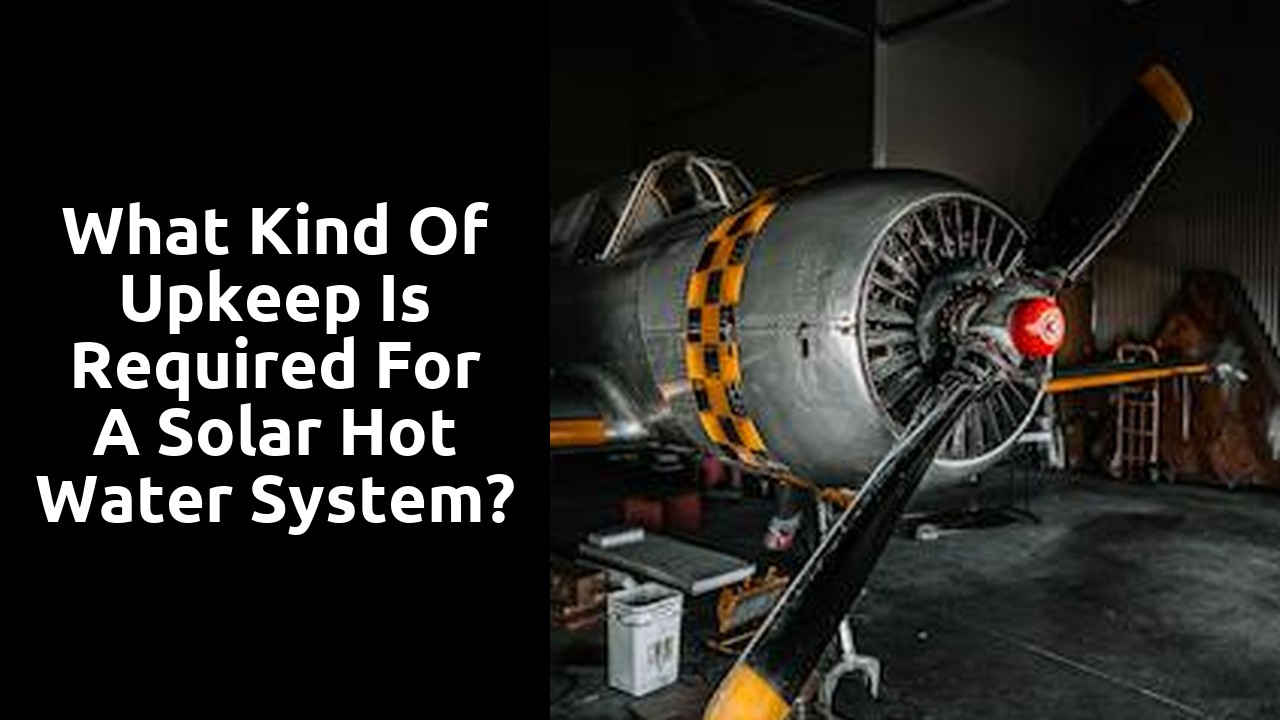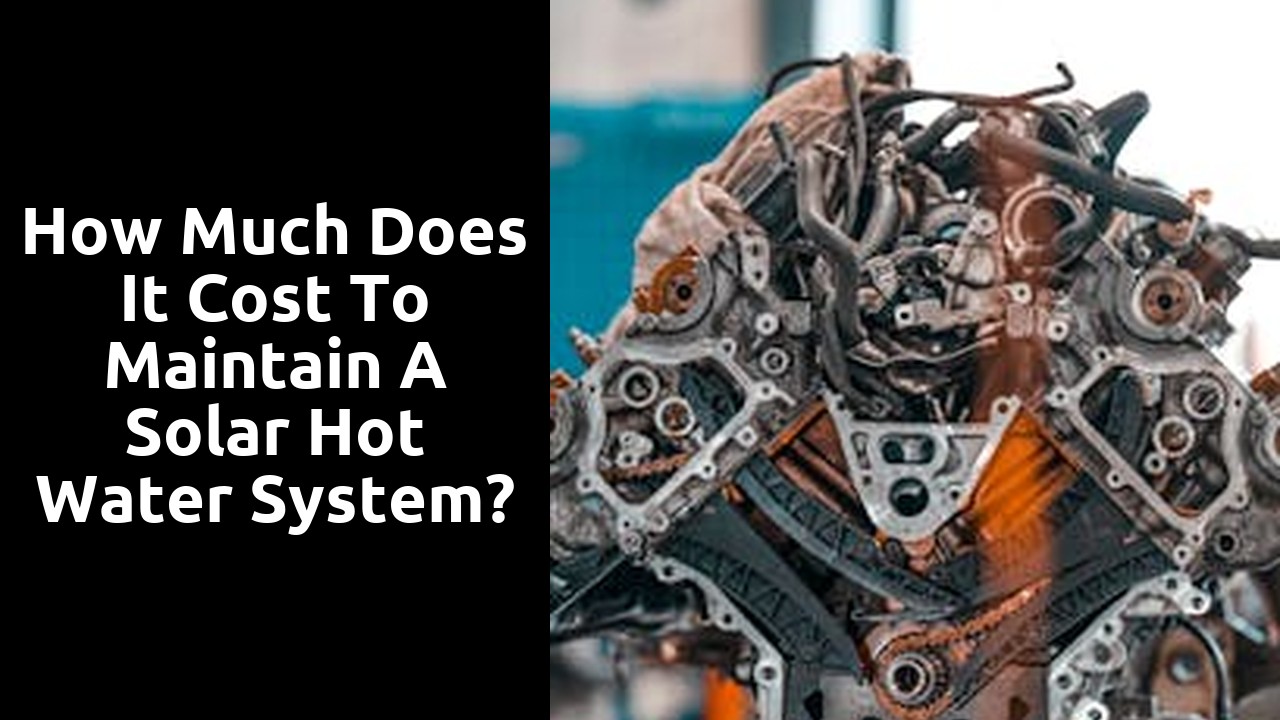
Inspecting Pump Operation
When it comes to Solar Hot Water System Maintenance and Repair, one crucial aspect to inspect regularly is the operation of the pump. The pump is responsible for circulating the water through the system, ensuring efficient heating. To inspect the pump operation, first, check if the pump is making any unusual noises during operation. Any unusual sounds could indicate potential issues that need attention. Additionally, closely observe the flow of water within the system to ensure it is consistent and adequate to meet the hot water demand of the household.
Furthermore, it is important to inspect the pump for any signs of leaks or damage. Examine all connections and fittings to ensure they are secure and free of leaks. A leaking pump can lead to water wastage and reduced system efficiency. Additionally, check the pump's electrical components to see if they are functioning correctly. Any signs of damage or wear should be addressed promptly to prevent further issues with the pump's operation.
Testing Pump Functionality and Pressure
To ensure the efficient operation of a solar hot water system, it is vital to regularly test the functionality and pressure of the pump. Begin by checking that the pump is working correctly by turning it on and observing for any unusual noises or vibrations. Additionally, inspect the pressure gauge to ensure it is within the recommended range for optimal system performance. Remember that a well-functioning pump is crucial for the circulation of water throughout the system, so any issues should be addressed promptly to avoid further complications. Regularly monitoring the pump's functionality and pressure will help prevent potential breakdowns and extend the lifespan of your system. Solar Hot Water System Maintenance and Repair are essential to keeping your system running efficiently for years to come.
As part of the testing process, it is recommended to conduct a thorough evaluation of the pump's pressure to guarantee that it is operating at the desired level. Use a pressure gauge to measure the pressure output of the pump and compare it to the system's specifications. If the pressure is outside the recommended range, adjustments may be necessary to optimise the pump's performance. Bear in mind that maintaining the correct pressure is vital for ensuring consistent hot water supply and overall system efficiency. By regularly testing the pump's functionality and pressure, you can identify any potential issues early on and take proactive measures to address them before they escalate. Solar Hot Water System Maintenance and Repair is a crucial aspect of keeping your system in top working condition and maximising its longevity.
Assessing Tank Condition
Assessing the condition of the tank is an essential aspect of Solar Hot Water System Maintenance and Repair. Begin by visually inspecting the tank for any signs of rust or sediment build-up. Rust can weaken the tank's structural integrity, leading to leaks or malfunctions, while sediment build-up can hinder the system's efficiency. If any issues are found, they should be addressed promptly to avoid further damage or performance issues. Additionally, checking the sacrificial anode within the tank is crucial. This component plays a key role in preventing corrosion within the tank itself. Make sure the sacrificial anode is in good condition and is replaced as needed to maintain the tank's longevity and efficiency.
Checking for Rust or Sediment BuildUp
Checking for rust or sediment build-up is a crucial aspect of maintaining a solar hot water system. Over time, metal components in the system may corrode, leading to rust that can hinder the system's performance. Sediment build-up can also occur, especially in areas with hard water, affecting the efficiency of the system. Regular inspection of the system for these issues is essential to ensure its optimal functioning and longevity.
To check for rust or sediment build-up, begin by examining the components of the system, such as pipes, fittings, and the storage tank. Look for any signs of corrosion or discolouration, which may indicate the presence of rust. Additionally, inspect the tank for any sediment accumulation at the bottom. If rust or sediment is detected, it is important to address these issues promptly to prevent further damage and maintain the effectiveness of the solar hot water system. Solar Hot Water System Maintenance and Repair.
Flushing the System
Flushing the Solar Hot Water System ensures optimal functionality and longevity. Over time, mineral deposits and airlocks may accumulate within the system, hindering its efficiency. Therefore, regular flushing of the system is crucial to maintain peak performance. Start by turning off the power supply to the system and closing the inlet valve to prevent any new water from entering during the flushing process. Then, open the drainage valves and let the water flow out until it runs clear, removing any sediments or blockages along the way. Repeat this process until the water appears clean and free from any debris, allowing the system to operate at its full capacity.
After flushing, it is essential to check for any remaining airlocks or mineral deposits that may still be present within the system. These can impact the water flow and heating process, ultimately affecting the system's performance. If any airlocks or deposits are found, they should be carefully removed to prevent any further hindrance to the system's operation. By maintaining a regular flushing schedule and ensuring the system is free from any blockages, the Solar Hot Water System can continue to provide efficient hot water supply, extending its lifespan and reducing the need for costly repairs in the future.
Removing Airlocks and Mineral Deposits
To ensure optimal performance of your solar hot water system, regular maintenance is essential. In particular, addressing airlocks and mineral deposits is crucial in preventing potential issues and maximizing the system's efficiency. Airlocks can hinder the flow of water within the system, leading to reduced heating capacity. Mineral deposits, such as calcium and magnesium build-up, can also impede the system's functionality over time. Therefore, it is important to routinely check for and address these issues as part of your Solar Hot Water System Maintenance and Repair routine.
To effectively remove airlocks and mineral deposits from your solar hot water system, start by isolating the system and shutting off the pump. Next, open the relief valve to release any pressure within the system. Once depressurized, carefully bleed the air out from the system by opening the necessary valves and allowing water to flow through. To tackle mineral deposits, consider flushing the system with a descaling solution recommended by the manufacturer. Regular maintenance of this nature can help extend the lifespan of your solar hot water system and ensure it operates at its optimal capacity.
FAQS
How often should I inspect the pump operation of my solar hot water system?
It is recommended to inspect the pump operation of your solar hot water system at least once every few months to ensure smooth functioning. ####
How can I test the functionality and pressure of the pump in my solar hot water system?
You can test the functionality and pressure of the pump by observing the flow of water and checking for any unusual noises or vibrations during operation. ####
What should I look for when assessing the tank condition of my solar hot water system?
When assessing the tank condition, check for any signs of rust or sediment build-up, which could indicate potential issues that need to be addressed. ####
How often should I check for rust or sediment build-up in my solar hot water system tank?
It is advisable to check for rust or sediment build-up in the tank periodically, ideally every few months, to prevent any corrosion or blockages. ####
Why is it important to flush the system of my solar hot water system?
Flushing the system helps remove airlocks and mineral deposits that may accumulate over time, ensuring optimal performance and efficiency of your solar hot water system. ####
How can I effectively remove airlocks and mineral deposits from my solar hot water system?
To remove airlocks and mineral deposits, you can flush the system with a cleaning solution or contact a professional service provider for assistance in maintaining your solar hot water system.
